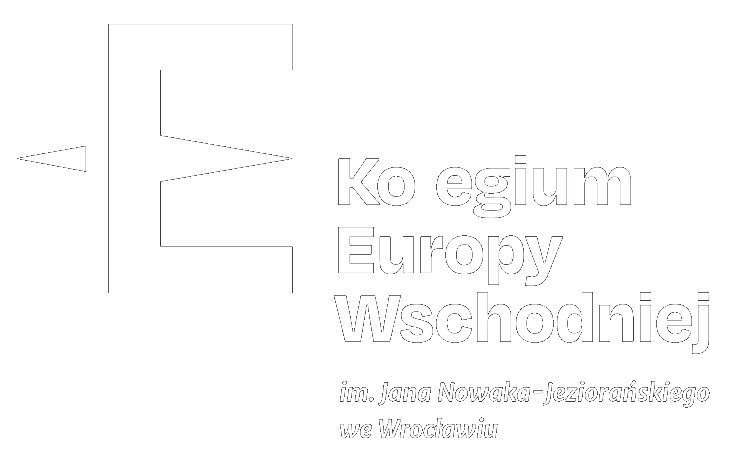Online conference by ideaForum of the Batory Foundation and College of Eastern Europe
Link to the event on FB
Thursday, 17 February 2022, 4:00pm-6:10pm (CET)
Programme
16:00-16:05 Opening remarks
Edwin Bendyk, President, The Batory Foundation, Poland
Laurynas Vaičiūnas, President, College of Eastern Europe, Lithuania/Poland
16:05-16:55 Part One: Social reception of illiberal and Eurosceptic narratives: similarities and differences
Speakers:
Dimitar Nikolovski, Director, Eurothink, project leader, North Macedonia
Kristina Angelevska, Communications specialist, Eurothink, North Macedonia
Faris Kočan, Lecturer, University of Ljubljana, Slovenia
Maria Wincławska, Associate Professor, Nicolaus Copernicus University, Poland
Manuela Caiani, Associate Professor, Scuola Normale Superiore, Italy
Commentary: Piotr Buras, head of the office, ECFR
Moderation: Adam Balcer, Program Director, College of Eastern Europe, Poland
16:55-17:40 Part Two: Eurosceptic and Illiberal political forces in Europe
Speakers:
Dimitar Nikolovski, Director, Eurothink, North Macedonia
Adam Balcer, Program Director, College of Eastern Europe, Poland
Marco Lovec, Associate Professor, University of Ljubljana, Slovenia
Manuela Caiani, Associate Professor, Scuola Normale Superiore, Italy
Moderation: Edwin Bendyk, President, The Batory Foundation, Poland
17:40-18:10 Discussion
Join the conference in English on the @ECFR Warsaw on Facebook and on the YouTube profile of the Batory Foundation.
Kristina Angelevska – Project Assistant and Communications Officer at Eurothink – Center for European Strategies. She is an alumna of the Peace and Security training program of Arms Control and Disarmament organized by the Organization for Security and Cooperation in Europe (OSCE) and the United Nations Office for Disarmament Affairs (UNODA).
Adam Balcer – Program Director at the Jan Nowak Jeziorański College of Eastern Europe (KEW). He also works as a national researcher at the European Council on Foreign Relations (ECFR). He is a lecturer at the Centre of East European Studies (SEW) at the University of Warsaw.
Edwin Bendyk – President of the Foundation Stefan Batory. A journalist, publicist and writer, until recently, he was in charge of the “Polityka” scientific department weekly. He lectures at the Graduate School for Social Research of the Polish Academy of Sciences and Collegium Civitas, where he co-founded the Center for Future Research.
Piotr Buras – head of the Warsaw office of the European Council on Foreign Relations. His focus includes Germany’s EU and foreign policy, Poland in the EU, and EU politics. Buras is a journalist, author and expert on German and European politics. Between 2008 and 2012, he worked as a columnist and Berlin correspondent for Gazeta Wyborcza, the most prominent Polish daily newspaper. He was also a visiting fellow at the Stiftung Wissenschaft und Politik in Berlin and a non-resident fellow at the Institute for Human Sciences in Vienna.
Manuela Caiani – Associate Professor in political science at the Scuola Normale Superiore and an affiliated scholar at the Cosmos Center for Social Movement Studies (SNS). Her research focuses on far-right, Europeanization/transnationalization and qualitative social research methods.
Faris Kočan – teaching Assistant in European Studies and Research Fellow at the University of Ljubljana, Faculty of Social Science. The focus of his research is on topics related to post-conflict Southeast Europe.
Marko Lovec – Associate Professor of International Relations at the University of Ljubljana, Faculty of Social Science. His research focuses on the politics of European integration, institutional developments, and Central and Eastern Europe.
Dimitar Nikolovski – Executive Director of the Center for European Strategies-Eurothink. He is a PhD candidate at the Polish Academy of Sciences in Warsaw, Poland, with a research focus on populism and civil society in South-Eastern Europe.
Maria Wincławska – Associate Professor of Political Science at the Faculty of Political and Security Studies of the Nicolaus Copernicus University in Toruń. Her main research concentrates on political parties, party organizations and party systems.
Illiberalism and Euroscepticism have gained popularity in Europe among different social groups in recent years. Nevertheless, despite certain standard features, there is a significant ideological variety of Eurosceptic and illiberal discourses – from hard to soft ones – that may be observed. Considerable differences in the local variants of Euroscepticism and Illiberalism also exist between and within European countries. Consequently, Eurosceptic political forces attempt to establish permanent cooperation by finding common ground. At the same time, they face severe challenges in overcoming fundamental divergences regarding essential issues. Moreover, the influence of Eurosceptic parties differs depending on the respective national political scene.
During our conference, we would like to discuss the social reception of Illiberal and Eurosceptic narratives in Europe and the relations between Eurosceptic political forces by paying particular attention to Italy, North Macedonia, Poland, and Slovenia. The debate about the phenomena in these four countries will allow us to show differences and similarities between Euroscepticism and Illiberalism in Europe and draw some relevant lessons for the entire continent.
The event is organized within the project “Tackling Illiberal/Eurosceptic Narratives from Below” supported by the EU program “Europe for Citizens” in cooperation with the Batory Foundation.



